International Women’s Day: what is the Netherlands doing to improve the position of women worldwide?
Weblogs
Promoting gender equality and improving the social and economic status of women and girls around the world is a key area of work for the Ministry of Foreign Affairs. What is the Ministry of Foreign Affairs doing to help boost gender equality both inside the ministry’s walls and beyond?
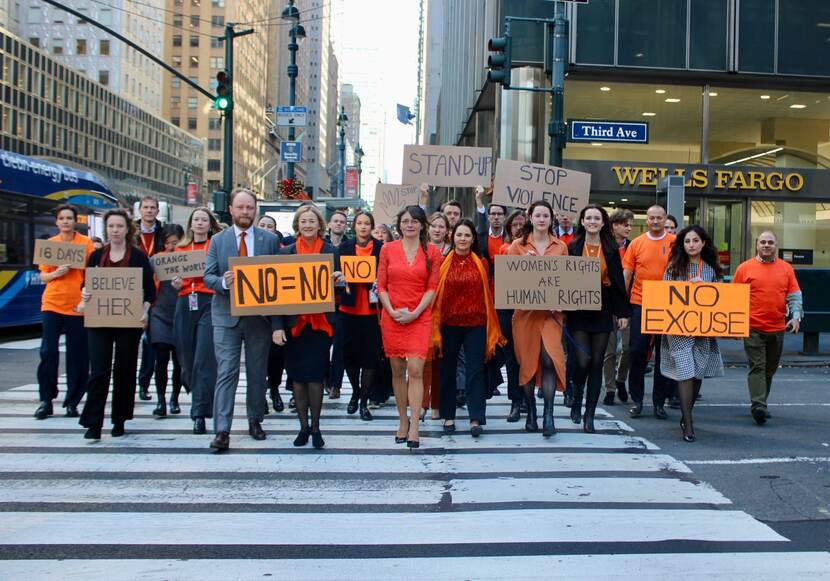
The Netherlands is known globally as a champion of gender equality and greater rights for women and girls. For instance, the country has one of the world’s biggest funds for the promotion of equal rights for women and girls, gender equality and sexual and reproductive health and rights (SRHR): the SDG5 Fund. The fund holds almost €500 million for the 2021-2025 period.
The programmes and projects financed by the fund fall under the responsibility of the Women’s Rights and Gender Equality Task Force (TFVG), in which different foreign ministry departments work together for equal opportunities and rights for women and girls.
The Netherlands has one of the world’s biggest funds for the promotion of equal rights for women and girls, gender equality and sexual and reproductive health and rights: the SDG5 Fund.
According to Karen Burbach, who has headed up the task force since 2021, the team again achieved major goals and results in a range of areas in 2023: ‘We supported feminist movements around the world, including feminist youth movements, through 21 strategic partnerships. Together with other ministry staff and like-minded countries, we worked to promote gender equality and the rights of women and girls and LGBTIQ+ people. The Netherlands also worked on these issues at EU level, which ultimately led to the approval of the first EU sanctions against sexual and gender-based violence and large-scale violations of women’s rights. It’s important that we continue our efforts given the clearly increasing pushback on gender equality and women’s rights around the world.’
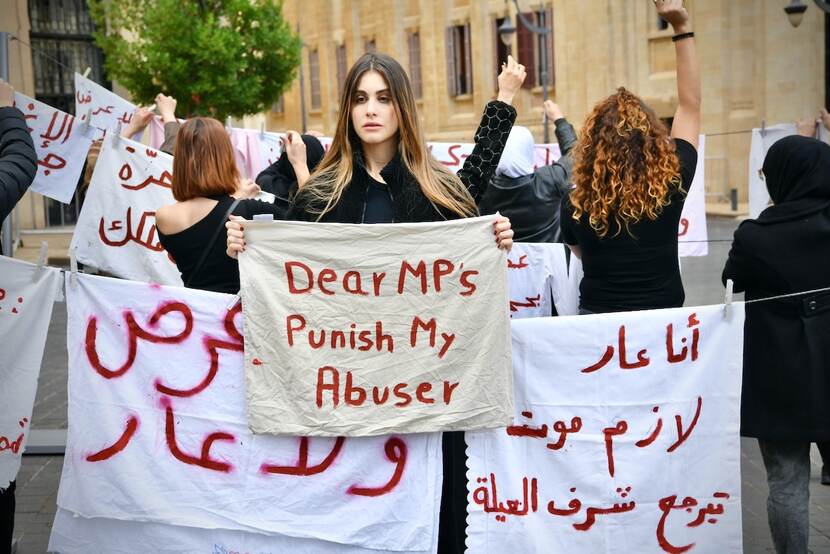
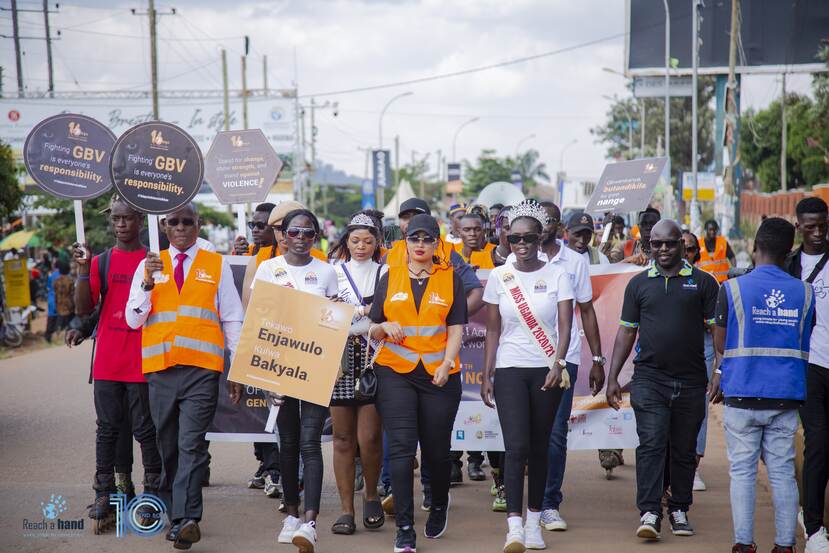
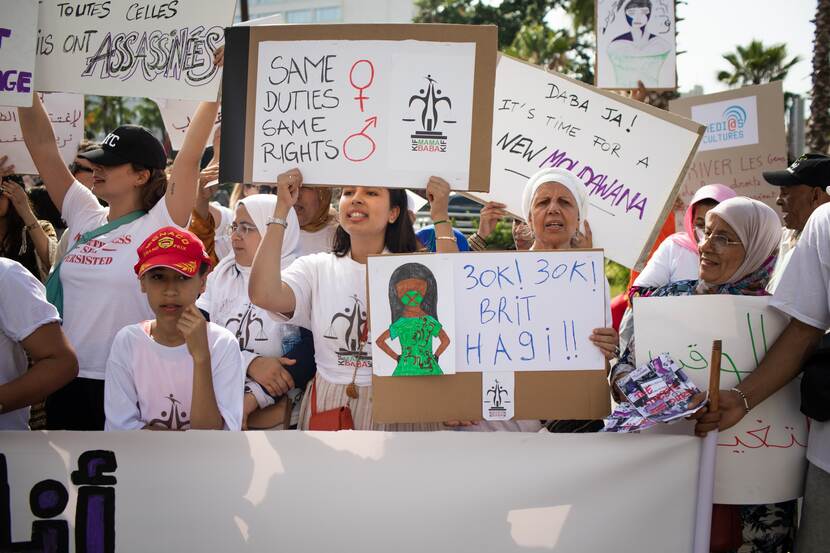
Generation Gender
One of the programmes funded from the fund is Generation Gender ('Gen G'), active in seven countries: Indonesia, Jordan, Lebanon, Morocco, Rwanda, South Africa and Uganda. The programme focuses on non-violent societies for women. Specifically, gender-based violence (GBV) and the unfair distribution of care between men and women is denounced.
Gen G does this in various ways, says Olloriak Sawade, programme manager at Rutgers, lead partner of GenG. 'The programme works with advocacy groups to make laws in a country fairer. We also create large campaigns to bring attention to the issues, for example in Morocco, the GenG coalition there organized a cartoon contest where women poignantly portrayed their position. A campaign like this originates in the countries themselves and can vary widely, but the aim is always to improve the position of women and young people.'
By the end of last year, the Gen G programme had exerted influence on 20 laws and plans, ensuring they reflected the rights and needs of women and young people.
Gen G, which runs until the end of 2025, was able to influence to date, 20 laws and policies that align with the rights and needs of women and youth. In Rwanda, for example, paid paternity leave of seven days was recently granted to male workers after the birth of their child. The same ministerial decree also extended the duration of maternity leave, to a total of 14 weeks.

Feminist foreign policy
The Netherlands’ commitment to greater equality between men and women and for LGBTIQ+ people around the world is also taking shape in feminist foreign policy. The Netherlands began pursuing this policy two years ago. Peter Derrek Hof, Ambassador for Women’s Rights and Gender Equality, sees this as an important signal: ‘Through our feminist foreign policy, the government is sending a clear message that more needs to be done to promote equality and equal treatment. Work on women’s rights and gender equality also helps reduce conflict, extremism, poverty and economic inequality.’ In introducing this policy the Netherlands has joined a group of frontrunners that are working hard for gender equality internationally, including Germany, Spain, France, Luxembourg, Canada, Mexico and Chile.
Feminist foreign policy is all about protecting human rights and promoting the meaningful participation of women and LGBTIQ+ people in decision-making. The policy’s focus is on rights, representation, resources and reality checks, and this is put into practice in different ways. For example, sexual violence during conflicts was a major theme at the Ukraine Accountability Conference held in The Hague last year. The Netherlands is also supporting EU sanctions in response to wide-scale violence against women in Iran.
Embassies worldwide
On 8 March Dutch embassies around the world will be marking International Women’s Day. All year round our embassies work on projects promoting equality. For example, the embassy in Serbia initiated the Female Role Models project, drawing attention to the achievements of inspiring women. Many embassies are holding debates on 8 March, including in Prague where the topic is the unequal payment of men and women for the same work. And at the Dutch embassy in Dublin inspiring women will be speaking at an event on female leadership.
At the Ministry of Foreign Affairs itself: FEE women’s network
The position of women in its own organisation is also a focus for the Ministry of Foreign Affairs. The Female Exchange of Experiences (FEE) network was set up in late 2007 in response to a perceived need among women to learn more from each other in order to achieve professional and personal growth. FEE meets this need by connecting women in an informal way.
FEE, which now has three hundred members, is not an advocacy group and so doesn’t adopt positions on behalf of its members. Its focus is on networking and learning and on the creation of ‘new girls’ networks’. FEE is the ideal forum for raising and discussing current issues and themes and for presenting the outcomes to relevant dialogue partners within the ministry. It organises workshops, discussions, lunchtime lectures and informal networking events. The day before International Women’s Day 2024, there was an event at the ministry attended by foreign minister Hanke Bruins Slot. International Women’s Day has taken on increasing significance for the minister.
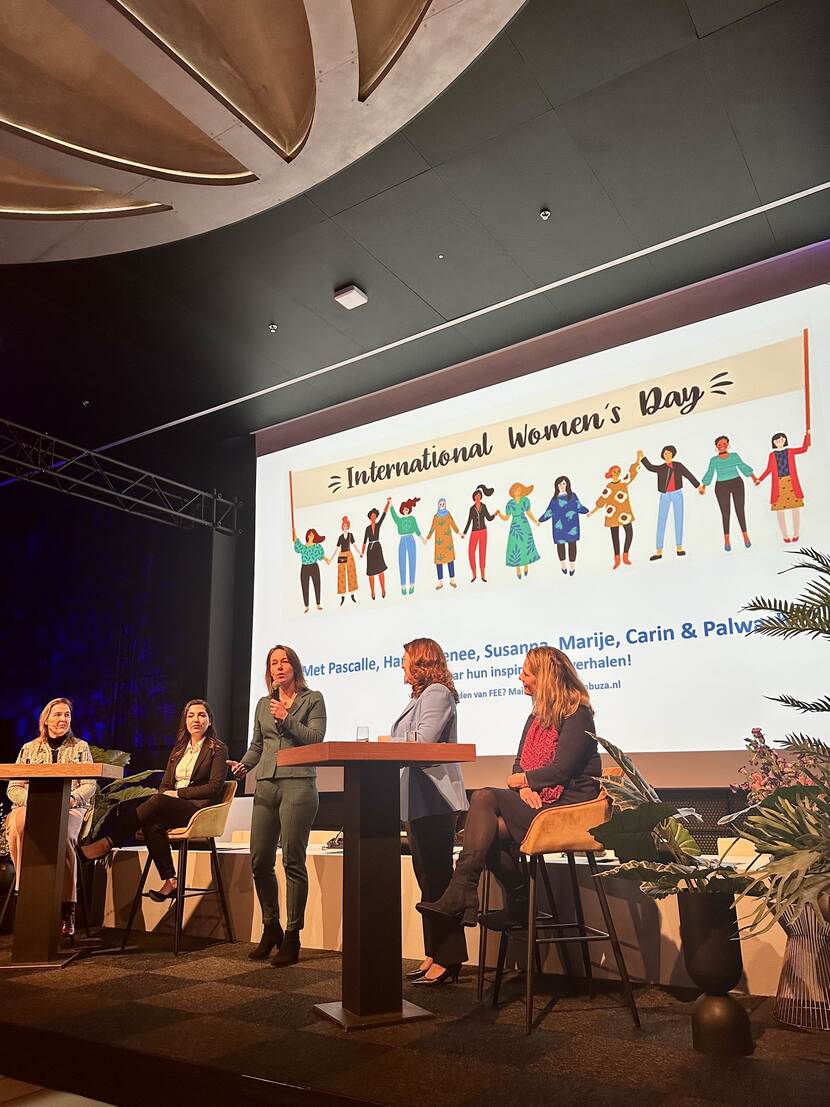
‘Progress for women means progress for everyone’
Ms Bruins Slot: ‘There’s still so much work to be done. In many places in the world, girls are not allowed to go to school. Women are not allowed to work, and sometimes don’t even have a bank account. They find themselves silenced through intimidation and exclusion. And so the world misses out on a lot of talent, perseverance and expertise.’
‘A missed opportunity, because in the end progress for women means progress for everyone. That also applies in the Netherlands, where women are still not equally represented. And that’s exactly why everyone should stand up for women’s rights. Because women activists, like Yulia Navalnaya, propel the world forwards, ultimately to better times.’